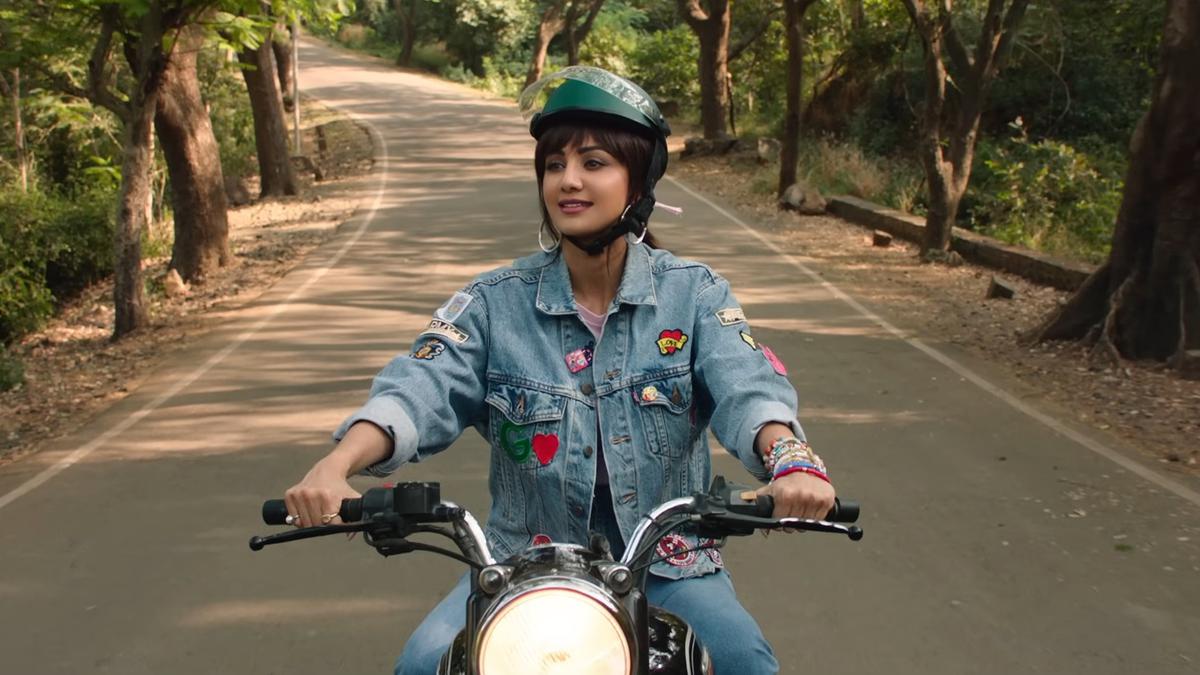Hindi Movie Review: Sukhee doesn’t introduce anything new to the midlife female empowerment genre

Sonal Joshi’s Sukhee scores plenty of points for being well-intentioned, but virtually none for originality, which isn’t the optimal balance for a greeting card, much less a movie. The latest entry into the “middle-aged woman finds herself” subgenre – which has grown tired in both the East and West – it offers few new insights about midlife reawakening and less edge than even Eat Pray Love. And yet, it’s hard to feel much hostility towards the film because, well, everybody’s heart seems to be in the right place. The title character is sympathetic, the ultimate message is unobjectionable, and the movie as a whole goes down relatively easy. Sukhee feels more unnecessary than it does unenjoyable.
Shilpa Shetty Kundra plays Sukhpreet “Sukhee” Kalra, a Punjabi homemaker whose contributions to her family and marriage go entirely underappreciated. Her husband Guru (Chaitanya Choudhry) is consistently preoccupied by financial climbing and winning contracts at work; her teenage daughter Jassi (Maahi Jain) takes her motherly efforts for granted. Only Sukhee’s elderly father-in-law (Vinod Nagpal) seems to recognize all that she does, and he passes away not a half-hour into the picture. So when an invitation to her 25-year high school reunion lands in her inbox, the disaffected Sukhee realizes that it’s time to return to her teenage home of Delhi and get back in touch with the independent, vivacious young woman she once was, objecting husband be damned.
We’ve seen this setup a hundred times before, presented in at least a half-dozen different cultural contexts and languages. But in the lead role, Shetty Kundra is plenty heartfelt and authentic, so despite the story’s lacking urgency, we buy into her arc and invest enough in her character. For as conventional as the scenario may be in the context of a film, it rings true enough to life.
What doesn’t ring nearly as true is the age-old friendship dynamic between the four women we’re supposed to believe were once best gal-pals in high school. This begins with the selection of actresses. I’m typically not one to harp on age discrepancies in casting, but there’s just no way to genuinely buy that the 48-year-old Shetty Kundra is the same age as 34-year-old Kusha Kapila, who plays the most prominent and engaging friend in the group, Meher. The other two actresses in the bunch, Dilnaz Irani and Pavleen Gujral, appear to have an even larger gap between them (substantiated by less-than-official online sources). While not quite as actively distracting as Dear Evan Hansen’s Ben Platt or the cast of TV’s Glee playing characters much younger than their real ages, the outlandish gap between the cast here consistently undermines any efforts to sell the audience on an authentic connection between them.
Beyond their obvious age differences, the central quartet doesn’t do a great job of evoking a strong sense of a shared past that binds them, either. We see their 17-year-old counterparts spending time together in flashback camcorder footage, but they do little in their present-day performances to convince us that they have a time-tested bond. But they’re fun to watch together in a more general sense; the film in many ways would have been better off going for a straight Sex and the City or Joy Ride scenario, rather than integrating a high school reunion requiring them to be the same age. Kapila, in particular, has a very fun screen presence, which previously catapulted her to YouTube fame.
Granted, when the friendship dynamic veers too far into outrageous humor, attempting to copycat the diarrhea sequence from Bridesmaids after the four spend the evening on a “Delhi Belly” food crawl, it also feels like it’s trying too hard. But in the smaller, quieter, more relationship-driven moments, these actresses have real chemistry and enjoyable interplay together. They may not be credible high school friends, but that’s not to say they couldn’t be friends as adults.
As one would expect in a Hindi film, there’s also a will-they-or-won’t-they romance. It’s between Sukhee and Vikram Verma (played by Amit Sadh), a high school classmate who always had a crush on her, and who happened to grow up into a more attractive adult. On the outs with her husband, Sukhee begins to consider what life in Delhi might look like with Vikram. This drama is mostly paint-by-numbers, but as with much of the rest of the movie, the actors are charming enough in the dynamic that we go along with it. I will also give the film credit that it actually made me wonder if Sukhee might really leave her husband and go for Vikram, even though this would completely break the rules of this genre of Bollywood. Additionally, Vikram owns race horses and Sukhee decides to be the jockey for a race, which while patently absurd makes for a very entertaining sequence involving her friends cheering her on from the stands.
Following an ample number of hijinks in Delhi, Sukhee ultimately makes the expected pivot back to being a movie about family. As Sukhee’s husband and daughter, respectively, Choudhry and Jain are believable (if not exactly likable) enough for the resolution of the domestic drama to not feel like a complete chore. That’s kind of the movie in a nutshell: it’s never unwatchable, but it’s also rarely engaging enough to spark genuine enthusiasm in the viewer. For those who eat up female midlife crisis movies, it’ll probably do the trick; for everyone else, there’s no reason to see it.

